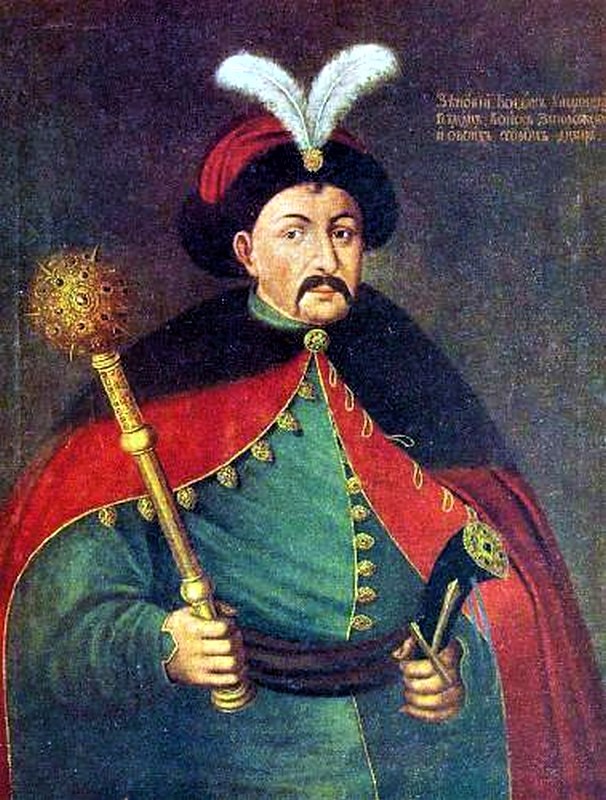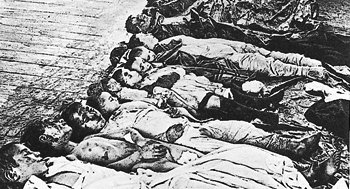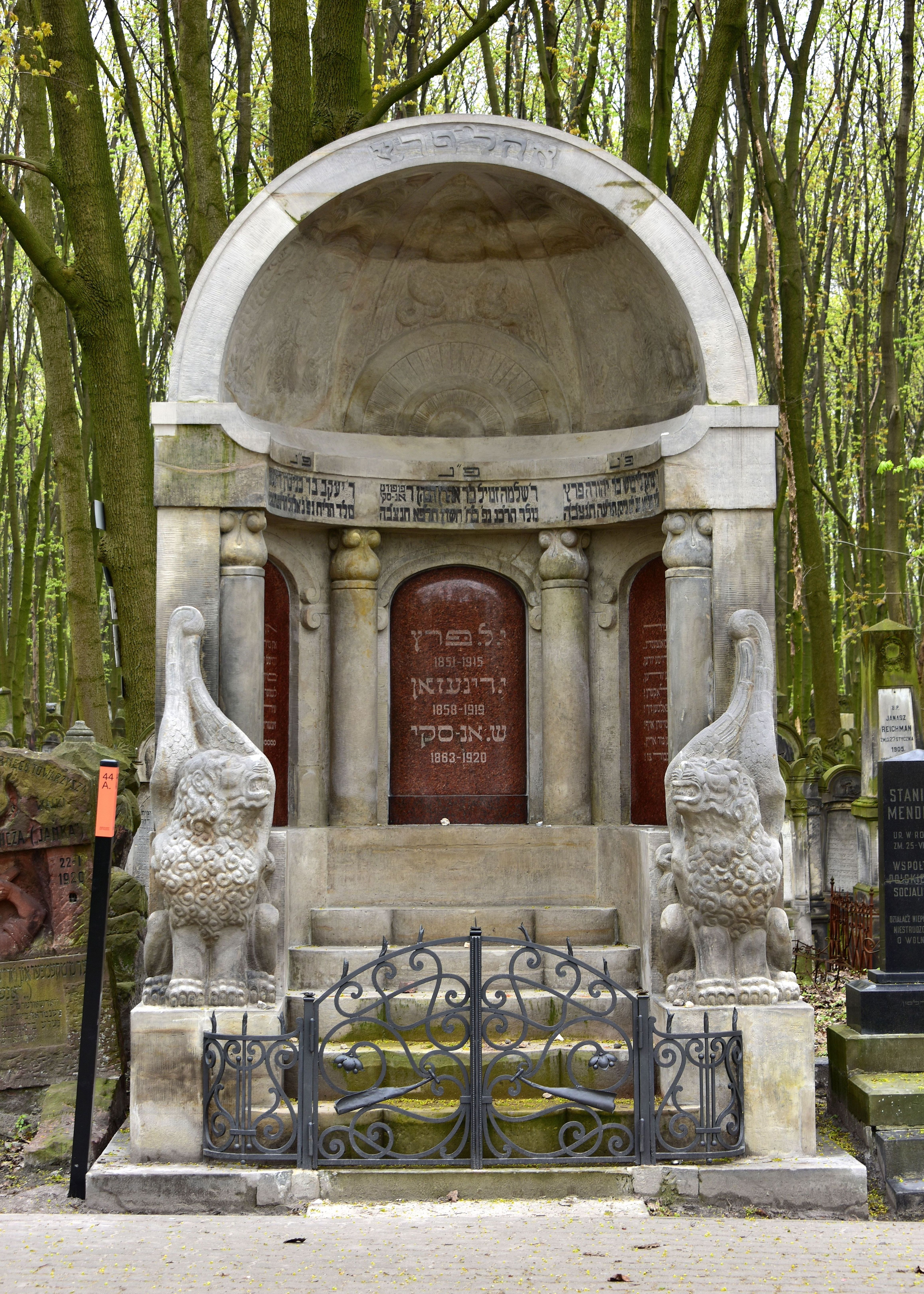|
Mikhl Gordon
Mikhl Gordon (; 4 November 1823 – 26 December 1890) was a Yiddish and Hebrew poet, author and songwriter, associated with the Haskalah movement in the Russian Empire. He is best known for his Yiddish poems and songs, many of which became part of the popular repertoire. Early life Mikhl Gordon was born in Vilna (then part of the Russian Empire) in 1823. His father, Aaron David Gordon, was the author of ''Apik neḥalim'' (Vilna, 1836), a religious work in the style of Moshe Chaim Luzzatto's ''La-yesharim tehillah''. His great uncle, Yisrael Gordon, was the Crown rabbi of Vilna. Gordon began writing poetry and prose during his studies at ''bet midrash''. At the age of 16, he was betrothed to Neḥamah Gordon, the sister of Judah Leib Gordon. They married three and a half years later, and Gordon lived with his in-laws for seven years after their marriage. Mikhl Gordon played a formative role in encouraging his brother-in-law's literary and educational development. As a young man, ... [...More Info...] [...Related Items...] OR: [Wikipedia] [Google] [Baidu] |
Zuni Maud
Zuni Maud (born Yitzhok Moyed; 1891 – 1956) was a Yiddish-American cartoonist, satirist, calligrapher and co-founder of the first Yiddish-language puppet theatre in the United States. Early life and education Zuni Maud (זוני מאוד) was born Yitzhok Moyed in the shtetl of Wasilków, in what is now Poland. His father was a gabbai. He studied at cheder, yeshiva and Talmud Torahs in Bialystok, Bielsk and Warsaw. While at these schools he would illustrate the studied Jewish texts, leading to disciplinary problems. Yiddish press and theatre He came to the United States in 1905 with his brother; he became Isaac Maud at Ellis Island. He did odd jobs while studying art at night at Cooper Union and the anarchist social center, the Ferrer School. While working as a messenger boy, he was given the nickname Sunny; he kept the name, but Yiddishized it to Zuni. In 1907 with other young intellectuals he founded the Yiddish magazine ''Di Yungt'' and later they started a satirical magaz ... [...More Info...] [...Related Items...] OR: [Wikipedia] [Google] [Baidu] |
Mordecai Aaron Günzburg
Mordecai Aaron Günzburg (, ; 3 December 1795 – 5 November 1846), also known by the acronym Remag () and the pen name Yonah ben Amitai (), was a Lithuanian Jewish writer, translator, and educator. He was a leading member of the Haskalah in Vilnius, and is regarded as the "Father of Hebrew Prose." Biography Günzburg was born into a prominent Jewish family in Salantai in 1795. His father Yehuda Asher (1765–1823), under whom he studied Hebrew and Talmud, was one of the early members of the Haskalah in Russia, and wrote treatises on mathematics and Hebrew grammar. Günzburg was engaged at the age of twelve, and married two years later, whereupon he went to live with his in-laws at Shavly. He continued his studies under his father-in-law until 1816. From there Günzburg went to Palanga and Mitau, Courland, where he taught Hebrew and translated legal papers into German. He did not stay in Courland long, and after a period of wandering settled in Vilnius in 1835. In 1841, he found ... [...More Info...] [...Related Items...] OR: [Wikipedia] [Google] [Baidu] |
Cherkasy
Cherkasy (, ) is a city in central Ukraine. Cherkasy serves as the administrative centre of Cherkasy Oblast as well as Cherkasy Raion within the oblast. The city has a population of Cherkasy is the cultural, educational and industrial centre of Cherkasy Oblast and Central Economical Region of Ukraine. Cherkasy has been known since the 13th century and played a great role in the history of Ukraine. The city was the centre of the land of the Cossacks; its citizens took part in Khmelnytsky Uprising, Khmelnychchyna and Koliivshchyna Cossack and peasant rebellions. The city is located on the right bank of Dnieper River (specifically at the Kremenchuk Reservoir), about south of the nation's capital, Kyiv. Cherkasy is divided into 2 Urban districts of Ukraine, urban districts: Sosnivskyi (with Orshanets village) and Prydniprovskyi. It hosts the administration of Cherkasy urban hromada, one of the hromadas of Ukraine. In June 2011, the city celebrated its 725th anniversary. Geogra ... [...More Info...] [...Related Items...] OR: [Wikipedia] [Google] [Baidu] |
Pogroms In The Russian Empire
Pogroms in the Russian Empire () were large-scale, targeted, and repeated Antisemitism, anti-Jewish riots that began in the 19th century. Pogroms began to occur after Russian Empire, Imperial Russia, which previously had very few Jews, acquired territories with large Jewish populations from the Polish–Lithuanian Commonwealth and the Ottoman Empire from 1772 to 1815. These territories were designated "the Pale of Settlement" by the Imperial Russian government, within which Jews were reluctantly permitted to live. The Pale of Settlement primarily included the territories of Poland, Ukraine, Belarus, Bessarabia (modern Moldova), Lithuania and Crimea. Jews were forbidden from moving to other parts of European Russia (including Grand Duchy of Finland, Finland), unless they converted from Judaism or obtained a university diploma or first guild merchant status. Migration to the Caucasus, Siberia, the Russian Far East, Far East or Central Asia was not restricted. Early pogroms Riots agai ... [...More Info...] [...Related Items...] OR: [Wikipedia] [Google] [Baidu] |
Smila
Smila ( ) is a city located on Dnieper Upland near the Tyasmyn River, in Cherkasy Raion, Cherkasy Oblast of Ukraine. The Tiasmyn River, a tributary of the Dnieper River, flows through the city. In January 2022, the estimated population was 65,675 a 1.2% decrease from 2021. Geography Climate The climate in Smila is moderately continental. Winters are cold with frequent snow. Summers are warm and can be hot in July, with little rain. Periods of temperatures higher than +10 last up to 170 days. The average annual precipitation is 450–520 mm. Population In 1989 the population of Smila was 77,500. In January 2022, the estimated population was 65,675, a 1.2% decrease from 2021. Language Distribution of the population by native language according to the 2001 census: History Smila arose from an early Cossack settlement founded in the late 16th century. It later came under Polish rule. In 1881, 1883, and 1904 there were pogroms in Smila (Smela), during which ... [...More Info...] [...Related Items...] OR: [Wikipedia] [Google] [Baidu] |
Shpola
Shpola ( ) is a List of cities in Ukraine, city located in Zvenyhorodka Raion of Cherkasy Oblast (oblast, province) in central Ukraine. In May 2011, a 14-meter monument was installed on the outskirts of the city, claiming that Shpola is the geographical center of Ukraine. It hosts the administration of Shpola urban hromada, one of the hromadas of Ukraine. It had a population of Administrative status In 1797, Shpola became part of the Zvenigorod district in the Kiev Governorate. It has been a city since 1938.Шпола // Большой энциклопедический словарь (в 2-х тт.). / редколл., гл. ред. А. М. Прохоров. том 2. М., «Советская энциклопедия», 1991. стр.668 Until 18 July, 2020, Shpola served as an administrative center of Shpola Raion. The raion was abolished in July 2020 as part of the administrative reform of Ukraine, which reduced the number of raions of Cherkasy Oblast to four. The area of Shpo ... [...More Info...] [...Related Items...] OR: [Wikipedia] [Google] [Baidu] |
Joseph Günzburg
Joseph Günzburg (Osip Gavrilovich Gintsburg, Осип Гаврилович Гинцбург (or ''Iosif-Evzel'', ''Иосиф-Евзель''); 1812 in Vitebsk – 12 January 1878 in Paris) was a Russian financier and philanthropist who became a baron in 1874. He was the son of Gabriel Günzburg and the father of Horace Günzburg. Having acquired great wealth during the Crimean War, Günzburg established a banking firm at St. Petersburg. There he began to labor on behalf of the welfare of the Russian Jews, Jewish community. In November 1861, he was appointed by the Russian government as a member of the rabbinical commission, the meetings of which lasted five months. He exerted himself to raise the standard of the education of the Jews. To this effect, he founded the Society for the Promotion of Culture Among the Jews in 1863 with the permission of the Russian government, and he served of as president of the Society till his death. Owing to Günzburg's efforts, the regulations conce ... [...More Info...] [...Related Items...] OR: [Wikipedia] [Google] [Baidu] |
Krementchug
Kremenchuk (; , , also spelt Kremenchug, ) is an industrial city in central Ukraine which stands on the banks of the Dnieper River. The city serves as the administrative center of Kremenchuk Raion and Kremenchuk urban hromada within Poltava Oblast. Its population is approximately ranking 31st in Ukraine. In 2001, the Ukrainian government included the city in the list of historical settlements. Although not as large as some oblast centers, Kremenchuk has a large industrial center in Ukraine and Eastern Europe. A KrAZ truck plant, the Kremenchuk Oil Refinery of Ukrtatnafta, the Kriukiv Railway Car Building Works, and Kremenchuk Hydroelectric Power Plant, in nearby Svitlovodsk, are located in or near Kremenchuk. Highway M22 crosses the Dnieper over the dam of the power plant. Originally established on the left bank, Kremenchuk eventually incorporated the city of on the right bank. The Kriukiv Railway Car Building Works is one of the oldest railway-repair and rail-car-buildin ... [...More Info...] [...Related Items...] OR: [Wikipedia] [Google] [Baidu] |
Poltava
Poltava (, ; , ) is a city located on the Vorskla, Vorskla River in Central Ukraine, Central Ukraine. It serves as the administrative center of Poltava Oblast as well as Poltava Raion within the oblast. It also hosts the administration of Poltava urban hromada, one of the hromadas of Ukraine. Poltava has a population of History It is still unknown when Poltava was founded, although the town was not attested before 1174. However, municipal authorities chose to celebrate the city's 1100th anniversary in 1999. The settlement is indeed an old one, as archeologists unearthed an ancient Paleolithic dwelling, as well as Scythian remains, within the city limits. Middle Ages The present name of the city is traditionally connected to the settlement Ltava, which is mentioned in the ''Hypatian Chronicle'' in 1174. [...More Info...] [...Related Items...] OR: [Wikipedia] [Google] [Baidu] |
Crimean War
The Crimean War was fought between the Russian Empire and an alliance of the Ottoman Empire, the Second French Empire, the United Kingdom of Great Britain and Ireland, and the Kingdom of Sardinia (1720–1861), Kingdom of Sardinia-Piedmont from October 1853 to February 1856. Geopolitical causes of the war included the "Eastern question" (Decline and modernization of the Ottoman Empire, the decline of the Ottoman Empire, the "sick man of Europe"), expansion of Imperial Russia in the preceding Russo-Turkish wars, and the British and French preference to preserve the Ottoman Empire to maintain the European balance of power, balance of power in the Concert of Europe. The flashpoint was a dispute between France and Russia over the rights of Catholic Church, Catholic and Eastern Orthodox Church, Orthodox minorities in Palestine (region), Palestine. After the Sublime Porte refused Nicholas I of Russia, Tsar Nicholas I's demand that the Empire's Orthodox subjects were to be placed unde ... [...More Info...] [...Related Items...] OR: [Wikipedia] [Google] [Baidu] |
Jacob Dinezon
Jacob Dinezon, also known as Yankev Dinezon ( – 1919), was a Yiddish author and editor from Lithuania (then part of the Russian Empire). There are various spellings of Dinezon's name in both Yiddish and English transliteration. Early in his career, Yiddish publications spelled his name דינעזאהן (Dinezohn). Later publications removed the ה and spelled his name דינעזאן or דינעזאָן (Dinezon). In English, his name has been spelled Dienesohn, Dinesen, Dineson, Dinezon, Dinesohn, Dineszohn, Dinezohn, Dynesohn, and Dynezon. Most of his career was dedicated to promoting the literary status of the Yiddish language, supporting and collaborating in the creation of early Yiddish prose, poetry, journals, and anthologies. He was part of an active group of Yiddish authors, including his colleagues and friends I. L. Peretz, Sholem Aleichem, and Mendele Mocher Sforim, considered the classic writers of modern Yiddish literature. He is credited as the author of the first ... [...More Info...] [...Related Items...] OR: [Wikipedia] [Google] [Baidu] |
Pseudonym
A pseudonym (; ) or alias () is a fictitious name that a person assumes for a particular purpose, which differs from their original or true meaning ( orthonym). This also differs from a new name that entirely or legally replaces an individual's own. Many pseudonym holders use them because they wish to remain anonymous and maintain privacy, though this may be difficult to achieve as a result of legal issues. Scope Pseudonyms include stage names, user names, ring names, pen names, aliases, superhero or villain identities and code names, gamertags, and regnal names of emperors, popes, and other monarchs. In some cases, it may also include nicknames. Historically, they have sometimes taken the form of anagrams, Graecisms, and Latinisations. Pseudonyms should not be confused with new names that replace old ones and become the individual's full-time name. Pseudonyms are "part-time" names, used only in certain contexts: to provide a more clear-cut separation between one's privat ... [...More Info...] [...Related Items...] OR: [Wikipedia] [Google] [Baidu] |




